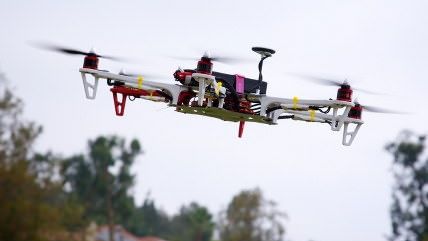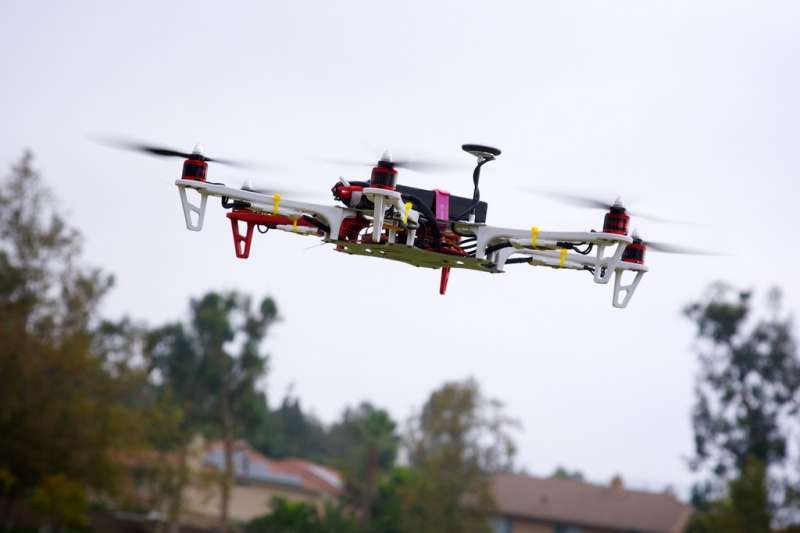Who Will Be Screwed Over by the FAA's New Drone Rules?
The precautionary principle strikes again.


What's a holiday weekend without a load of proposed federal regulations being dumped on an unwitting populace? On Sunday the Federal Aviation Administration (FAA) released its proposal on how exactly it will allow small drones—or Unmanned Aircraft Systems (UAS)—to be used for private and business purposes in American airspace.
The summary of proposed rules can be viewed here (pdf). Some of the highlights:
- Drones must weigh less than 55 pounds.
- The operator must remain within visual line of sight of the drone. No, binoculars don't count.
- They can only operate in the daylight.
- Drones must stay below 500 feet.
- Drone operators would have to pass an aeronautical exam and retake the test every two years.
- Background checks of some sort would be required for drone operators
- Aircraft markings mandated for identification purposes.
The immediate, obvious analysis of the new rules is that it completely quashes any proposal to use drones for deliveries. Amazon had announced efforts to turn to drones to facilitate shipments. It would not be able to do so under these proposed rules. USA Today contacted Amazon, and the company reaffirmed its commitment to drone deliveries, but perhaps not here in the United States:
Paul Misener, Amazon vice president for global policy, said the FAA's proposed new rules "wouldn't allow Prime Air to operate in the United States.'' Prime Air is the name of Amazon's developmental program for drone delivery.
Amazon's Misner called for rules that would address Amazon's plan for using drones to deliver packages.
"The FAA needs to begin and expeditiously complete the formal process to address the needs of our business, and ultimately our customers,'' he said. "We are committed to realizing our vision for Prime Air and are prepared to deploy where we have the regulatory support we need."
It looks like the precautionary principle in action, which should come as no surprise when dealing with federal regulators. Rather than seeing whether drone deliveries cause actual public safety hazards before instituting restrictions, the FAA is regulating out of fear of what harms may (or may not) come. Adam Thierer of the Technology Liberation Front blog notes, "You can't read through these 200 pages of regulations without getting sense that the FAA still wishes that private drones would just go away," and worries about the regulations' impact not on Amazon so much as smaller, innovative companies that would need drones as part of its central business model:
But what I worry about more are all the small 'Mom-and-Pop' drone entrepreneur, who want to use airspace as a platform for open, creative innovation. These folks are out there but they don't have the name or the resources to weather these restrictions the way that Amazon can. After all, if Amazon has to abandon same-day drone delivery because of the FAA rules, the company will still have a thriving commercial operation to fall back on. But all those small, nameless drone innovators currently experimenting with new, unforeseeable innovations may not be so lucky.
At the same time that the FAA released these new proposed rules, the White House released a memo to also set up some data retention and privacy guidelines for the federal government's own use of drones. Those rules can be read here, but to summarize, they would require the feds to comply with applicable laws and authorizations, as well as the Privacy Act of 1974.
Below, Reason TV on the many potential useful private uses for drones:


Show Comments (53)